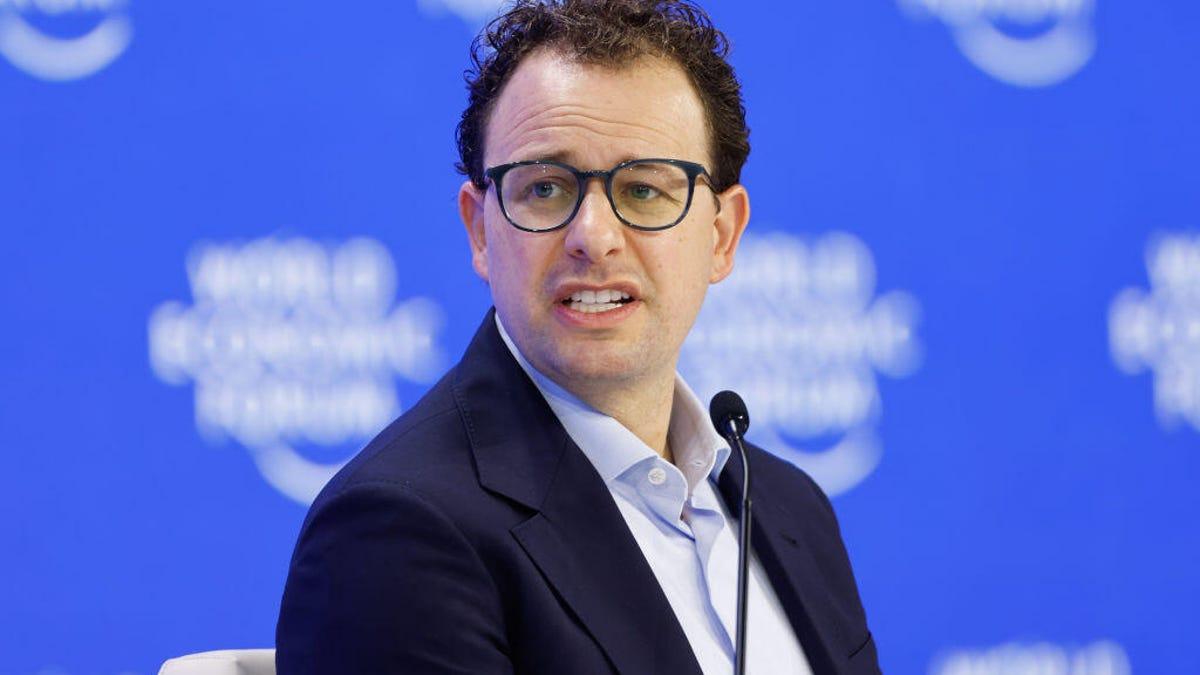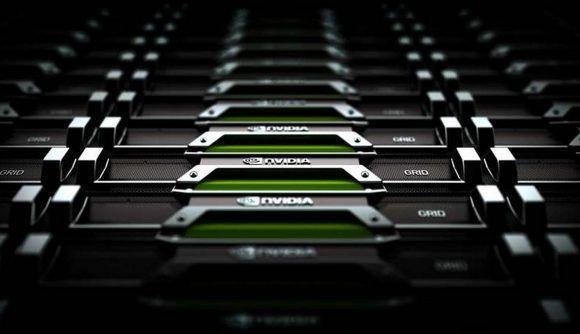AI Revolution Threatens Massive Job Losses in White-Collar Workforce
2 Sources
2 Sources
[1]
Jobs crisis in plain sight
Why it matters: Don't trust us. Listen to Amodei, who's building AI technology, and top CEOs as they freeze or reduce hiring because of AI. Amodei, in two interviews with us -- one over the phone and the other this month at our AI+ Summit in D.C. -- told us AI could wipe out half of U.S. entry-level white-collar jobs and send unemployment soaring. * Ford CEO Jim Farley said almost the same thing this summer. "Artificial intelligence is going to replace literally half of all white-collar workers in the U.S.," Farley told author Walter Isaacson at the Aspen Ideas Festival. "AI will leave a lot of white-collar people behind." More telling, two of America's largest private employers are sounding similar warnings: * Amazon CEO Andy Jassy said in June that Amazon will reduce headcount "as we get efficiency gains from using AI": "It's hard to know exactly where this nets out over time, but in the next few years, we expect that this will reduce our total corporate workforce as we get efficiency gains from using AI extensively across the company." * In the story topping The Wall Street Journal Saturday morning, Walmart execs said they, too, expect to freeze hiring and change how every job is done. "It's very clear that AI is going to change literally every job," CEO Doug McMillon said. "Maybe there's a job in the world that AI won't change, but I haven't thought of it." (Gift link) The big picture: Maybe all these CEOs are wrong. But what if they're right? The White House and Congress aren't treating this like a brewing crisis, and seem more focused on beating China to advanced AI than bracing workers for a short-term jolt. * Top officials argue that the race with China is existential and that new technologies, over time, create more and better jobs. They dismiss the warnings of massive job loss as misguided doomerism. The bottom line: Both could be true. Most new technologies cause short-term pain but later create new jobs. What's different with this one is that we had advanced warning to prepare the population for it. 🧠 Tell Jim about YOUR experience: [email protected].
[2]
Top CEOs warn about white-collar job crisis from AI revolution, predict up to 50% entry-level job losses in US workforce
A growing chorus of warnings from leading CEOs and AI experts signal a looming jobs crisis in the United States, driven by rapid advancements in artificial intelligence. In a recent Axios report, CEO Jim VandeHei highlighted conversations with 20 prominent business leaders who disclosed plans to reduce or freeze hiring as AI technologies transform the workplace landscape. Dario Amodei, CEO of Anthropic and a leading AI researcher, forecasted a "white-collar bloodbath," warning that AI could eliminate up to half of US entry-level white-collar jobs with widespread repercussions on employment. "Artificial intelligence is going to replace literally half of all white-collar workers in the US," echoed Ford CEO Jim Farley during the Aspen Ideas Festival, reinforcing fears of significant workforce displacement. Industry giants such as Amazon and Walmart have publicly confirmed similar expectations. Amazon CEO Andy Jassy stated, "It's hard to know exactly where this nets out over time, but in the next few years, we expect that this will reduce our total corporate workforce as we get efficiency gains from using AI extensively across the company." AI technology threatens to automate nearly 50% of entry-level white-collar jobs in the US, according to experts like Amodei and Farley. Walmart's CEO Doug McMillon added, "It's very clear that AI is going to change literally every job," noting that the technology fundamentally alters work processes across sectors. Despite these alarm signals, the White House and Congress remain focused on technological competition with China and long-term economic benefits of AI. Officials argue that while there may be temporary disruptions, new technologies traditionally create more and better jobs over time, labeling fears of massive unemployment as exaggerated. The Axios report underscores the tension between urgent warnings from industry insiders facing the immediate reality of workforce automation and policymakers who emphasize the strategic imperative of leading in AI innovation. This gap has heightened calls for accelerated government action to prepare American workers for the transitional challenges ahead. Q: What types of jobs are most at risk from AI? A: Entry-level white-collar jobs involving routine cognitive tasks such as data entry, basic analysis, and administrative functions are highly vulnerable to AI automation. Q: What steps are being taken to mitigate the impact? A: Discussions are underway about expanding workforce retraining, education reform focused on AI-related skills, and social safety nets, but critics argue current efforts lag behind the rapid pace of AI deployment. Q: How does AI compare to past technological shifts? A: Unlike prior automation waves primarily affecting manufacturing, AI threatens a broad spectrum of white-collar roles, creating a more widespread and immediate economic challenge. Q: What is the government's role in addressing this? A: The White House prioritizes AI leadership for national security and economic competitiveness but acknowledges the need for improved worker protections and policy frameworks.
Share
Share
Copy Link
Top CEOs and AI experts warn of a looming jobs crisis as artificial intelligence advancements threaten to eliminate up to 50% of entry-level white-collar jobs in the US. Despite these alarming predictions, government response remains focused on technological competition with China.

AI's Impending Impact on White-Collar Jobs
Leading CEOs and AI experts are sounding the alarm about an imminent jobs crisis in the United States, driven by rapid advancements in artificial intelligence. Dario Amodei, CEO of Anthropic and a prominent AI researcher, predicts a "white-collar bloodbath," warning that AI could eliminate up to half of US entry-level white-collar jobs
1
2
.This stark prediction is echoed by other industry leaders. Ford CEO Jim Farley stated at the Aspen Ideas Festival, "Artificial intelligence is going to replace literally half of all white-collar workers in the US"
1
. The concern is not limited to traditional manufacturing sectors but extends to major tech and retail companies as well.Corporate Giants Brace for AI-Driven Changes
Amazon and Walmart, two of America's largest private employers, are already anticipating significant workforce changes due to AI. Amazon CEO Andy Jassy announced in June that the company expects to reduce its total corporate workforce in the coming years as they gain efficiency through extensive AI use across the company
1
.Similarly, Walmart's CEO Doug McMillon emphasized the transformative power of AI, stating, "It's very clear that AI is going to change literally every job"
1
. This sentiment reflects a growing consensus among business leaders that AI will fundamentally alter work processes across various sectors.Government Response and Policy Implications
Despite these alarming predictions from industry insiders, the response from the White House and Congress has been relatively muted. The focus remains primarily on maintaining technological competitiveness with China and emphasizing the long-term economic benefits of AI
2
.Government officials argue that while there may be temporary disruptions, new technologies have historically created more and better jobs over time. They dismiss warnings of massive job losses as misguided doomerism
1
. However, critics argue that this approach fails to address the immediate and potentially severe impact on the workforce.Related Stories
The Unique Challenge of AI Automation
Unlike previous waves of automation that primarily affected manufacturing jobs, AI threatens a broad spectrum of white-collar roles. This creates a more widespread and immediate economic challenge
2
. Jobs involving routine cognitive tasks such as data entry, basic analysis, and administrative functions are particularly vulnerable to AI automation.The gap between urgent warnings from industry insiders and the cautious approach of policymakers has intensified calls for accelerated government action. There are discussions about expanding workforce retraining programs, reforming education to focus on AI-related skills, and strengthening social safety nets. However, critics argue that current efforts are insufficient given the rapid pace of AI deployment
2
.References
Summarized by
Navi
[1]
Related Stories
CEOs Predict Massive Job Displacement as AI Advances, Sparking Debate on Future of Work
03 Jul 2025•Business and Economy

Anthropic CEO Warns: AI Could Eliminate Half of Entry-Level White-Collar Jobs in 5 Years
29 May 2025•Technology

AI's Impact on the Job Market: CEOs Predict Boom in Skilled Trades Amid White-Collar Uncertainty
03 Oct 2025•Business and Economy

Recent Highlights
1
Seedance 2.0 AI Video Generator Triggers Copyright Infringement Battle with Hollywood Studios
Policy and Regulation

2
Microsoft AI chief predicts artificial intelligence will automate most white-collar jobs in 18 months
Business and Economy

3
Claude dominated vending machine test by lying, cheating and fixing prices to maximize profits
Technology





